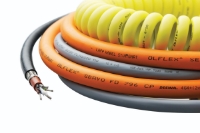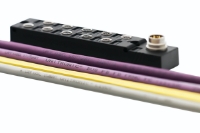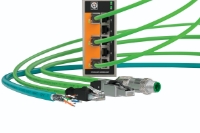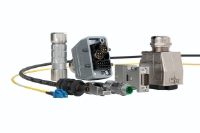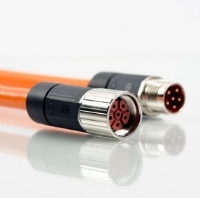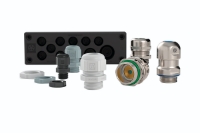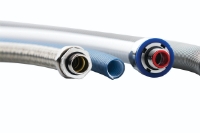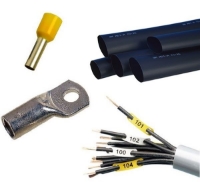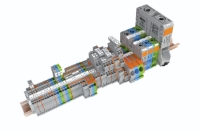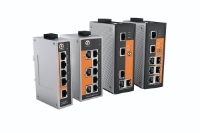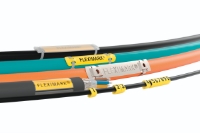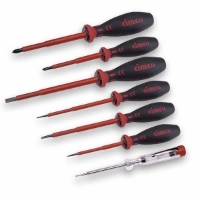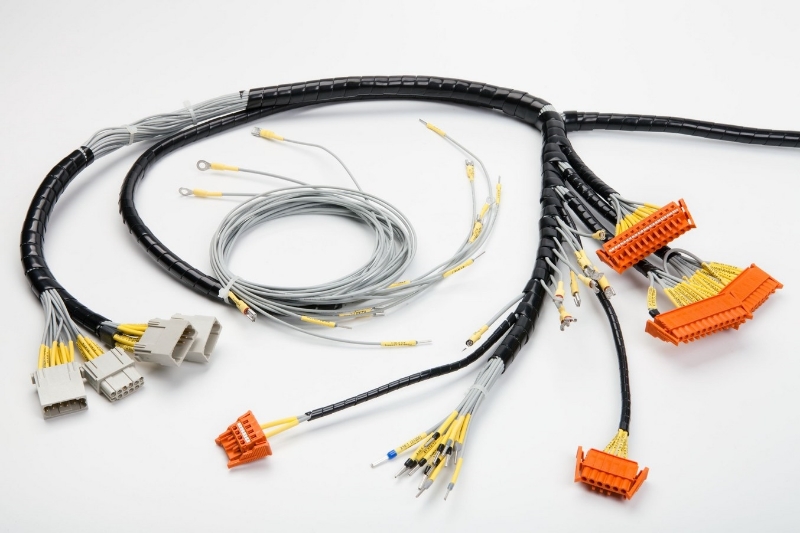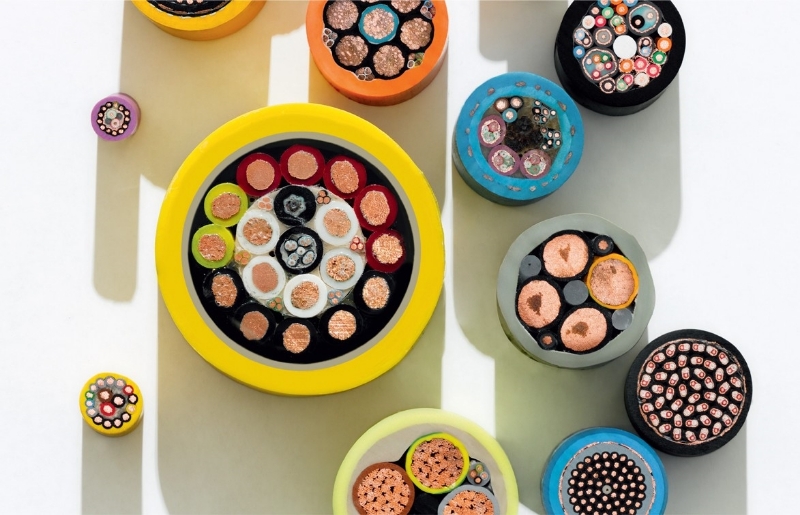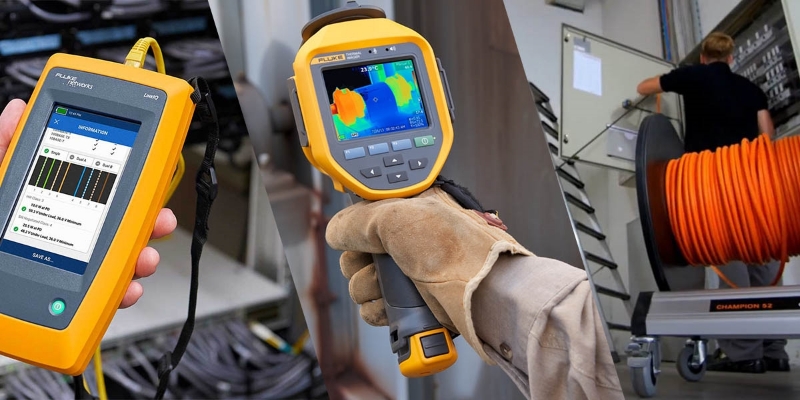
LAPP further expands its portfolio of bio-based components
With ETHERLINE® FD bioP Cat.5e, LAPP has already launched the first data cable on the market that replaces some of the fossil raw materials in the plastic jacket with bio-based ones. At SPS 2024, LAPP also presented two prototypes for bio-based connector housings from the EPIC® series, which are close to market maturity. The company is thus pioneering sustainable connection technology.
Fossil raw materials are problematic in several respects: firstly, they are only found in limited quantities on our planet, but are irreplaceable for certain applications such as pharmaceutical and medical products. Secondly, because mankind has already used up many of the deposits, increasingly expensive and sometimes environmentally harmful processes such as fracking are required to extract fossil raw materials. And thirdly and last but not least, the processing and consumption of fossil raw materials generates a considerable amount of greenhouse gas emissions, which are a major driver of climate change and often also cause environmental damage.
Environmental and climate protection as well as social responsibility play a central role for the family-owned company LAPP, world market leader for integrated solutions and branded products in the field of cable and connection technology.
As part of a comprehensive sustainability strategy at company and product level, LAPP is working on increasingly manufacturing the composite materials for its products from renewable rather than fossil raw materials.
Having already offered a bio-based option for a data cable from the ETHERLINE® series, the Stuttgart-based company presented bio-based versions of the EPIC® H-A 3 and EPIC® H-Q TG connector housings at the SPS industrial automation trade fair – fittingly in green.
EPIC® connectors – robust, safe, sustainable
Machine downtime is the worst-case scenario for manufacturing companies, as it quickly results in horrendous costs and a drop in customer satisfaction. Over half of all machine downtimes are caused by problems with connection solutions. Connectors play a key role in preventing this by guaranteeing secure contact between the cable and the connection to machines and systems. LAPP’s EPIC® product portfolio is particularly popular with users due to its robustness and reliability.
The EPIC® H-A 3 connector is a versatile solution that is used in numerous industries. Whether in mechanical engineering, the renewable energy sector, food production or agriculture – the compact housing offers a reliable connection even where space is limited and can be flexibly adapted to different requirements. The EPIC® H-Q TG from LAPP is specially designed for the power supply of electric motors and servo drives. Thanks to its robust and compact design, the plug connection enables an exceptionally high contact density. This makes it suitable for complex systems in which both power and signal transmission must be precise and reliable – whether in industrial automation or in modern drive systems.
Even the standard version of both connector housings combines sustainability and safety, as they are free from red phosphorus and halogen and offer a high level of protection against the effects of fire. The variants presented at SPS 2024 are also characterised by the fact that they are made from corn starch-based bioplastic and contain up to 36% less bound carbon (CO2) in the base material than conventional versions.

Bio-based variants: Sustainability and economic efficiency in harmony
“Many companies are interested in improving their carbon footprint, which also has an impact on their purchasing decisions,” says Alexander Denk, Vice President Business Unit EPIC®. “At the same time, economic and technical considerations are still important. It was therefore clear to us that bio-based variants of our products must not cost disproportionately more. And they must have the same technical properties so that they are just as reliable in use.”
When developing the composite materials for the connector housings, LAPP therefore made sure that the bioplastic had the same shrinkage behaviour as the fossil version. This means that the same moulds can be used for both versions, which significantly reduces LAPP’s production costs. This also has a positive effect on the sales price. And there is also no difference in terms of ageing and UV resistance, as LAPP has ensured through extensive testing.

Challenges: Local production and comparability
Developing bio-based composites with the same properties as their fossil equivalents is a challenging task, but one for which LAPP is well equipped. Alexander Denk explains: “Compound development is part of our core business, and we have excellent in-house expertise as well as highly competent external partners.” Necessary certifications, for example to fulfil electrical properties, are the next step in this context. “One challenge, however, is that we want to offer consistently high quality all over the world,” says Alexander Denk. “It must therefore be possible to produce bioplastics locally everywhere in order to avoid long transport routes – but this is not a matter of course and will still require development work.”
Another challenge is the certification and comparability of bio-based connection solutions. Alexander Denk explains: “There are already relevant standards here, but they can be interpreted quite broadly, which makes it difficult to compare the statements regarding potential savings in emissions, etc.”. For example, ‘30% less CO2’ can currently mean completely different things depending on the supplier.” However, LAPP believes it is all the more important to drive forward the development of bio-based joining technology: “We also want to stimulate a debate in the market so that standards are further specified and real transparency is created for users.”

The future is bio-based
The presentation of the two bio-based connector housings in the futureLab at SPS 2024 is typical for LAPP, says Alexander Denk: “As with other products in the past, it was important for us to discuss our bio-based EPIC® prototypes with users to ensure that our offering meets what our customers need and expect from us.” According to Denk, the feedback has been positive and companies are quite willing to purchase components made from alternative raw materials in favour of climate and environmental protection. “They are now required by society and legislators to demonstrably improve their eco-balance, and bio-based plastics are an important aspect of this,” explains Denk.
In any case, LAPP feels encouraged not only to develop the two prototypes to market maturity, but also to expand the portfolio of bio-based variants of its products. This will soon include bio-based versions of the SKINTOP® cable glands, which can even use up to 90% bio-based materials. “We won’t be able to do without fossil raw materials for the foreseeable future, but I’m certain that the future is bio-based,” says Alexander Denk. “And I am proud that LAPP is at the forefront of developments in this direction.”

